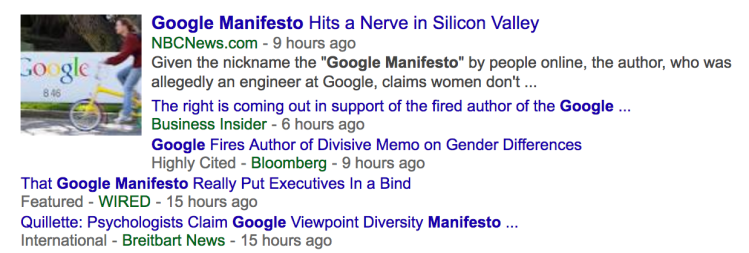testsetset
Elizabeth Sampat is an award-winning game designer who’s worked on blockbuster titles like Plants Vs Zombies 2 and Subway Surfers. She also makes small, intensely personal games about her own experiences. Her most recent one, 8 Vignettes from the Tech Industry, tackles the Google manifesto, an anti-diversity memo that went viral over the last few days. It’s a free-to-play browser game on indie platform itch.io.
“My first idea was to do a noninteractive essay, but even though I write a lot of essays, games are my first and favorite medium,” said Sampat in an email. “I wanted to guide the player through my gut reactions as I read the manifesto, and demonstrating that I wasn’t too evolutionarily preoccupied with being neurotic or having babies to do a little JavaScript was a nice bonus.”
Dubbed an “interactive essay,” 8 Vignettes is a text-only game that showcases quotes from the memo alongside anecdotes of Sampat’s own experiences. They counter the assertions made in the manifesto, such as the claim that women don’t want to work “long, stressful hours” with a story about how she pulled a 12-hour day then went home and worked all night — all while suffering from an intense stomach flu.
Sampat says that she hoped the game would show people why women in the industry are taking the manifesto so personally.
“It was all about modeling my personal experience for me. I wanted people to understand why hearing that women won’t work long hours got under my skin, or exactly how calm and cool under pressure women have to be,” said Sampat. “Often, the worst things women put up with are in 1-on-1 meetings: as a result, men never see the double-standard and assume women are overreacting or overly sensitive.”
Sampat says that she was a little hesitant to post the game at first, which is understandable since the alt-right has been boisterous about rallying support around the manifesto. However, once Sampat shared the game, she says that the response she’s received has been “overwhelmingly positive.”
“I was a little afraid to share it at first — women are always afraid to share these kinds of experiences — but it was so worth it,” said Sampat. “A couple women have told me it’s their [Game of the Year], and men have expressed anger and solidarity.”
Not all the anecdotes she shares are negative in the game. She ends on a hopeful note. She’s a game design department lead at Sybo Games, an indie studio based in Denmark, and she says it’s the most respected she’s ever felt. Her final anecdotes are bittersweet — she tries to explain to her friends what it’s like to work without the series of microaggressions, and finds that it’s amazingly difficult. “I feel like I’m explaining the color yellow to someone who’s been totally blind their whole life,” she says in the game.
These kind of intimate games can be challenging to create. Sampat wrote a book, Empathy Engines, discussing how to explore personal experiences and politics within the medium. She says that the key thing is to understand yourself and your own biases.
“Basically, it boils down to systems: every person lives under interlocking systems of constraints. Creating systems that emulate those constraints is key — but that means deeply understanding yourself, your emotions, your biases and constraints,” Sampat said. “That’s one of the reasons I make games outside of the amazing games I work on professionally — making personal games forces you to learn more about yourself.”
James Damore, the Google employee who wrote the memo, has been fired for violating Google’s code of conduct. Sampat said that it was the only responsible decision that the company could have made. She also offers a bit of wisdom about how the tech industry can move forward.
“If you put a gun to my head and asked me to come up with something in that manifesto I could agree with, it’s that investing in programs to get young women into STEM may not be the best use of resources — but not because of ‘reverse discrimination,'” said Sampat. “Here’s what I’ve learned from working on those blockbuster F2P titles: New players don’t help if your retention is in the gutter. We need to double- or triple-down on fixing the system that’s causing women to churn out of the industry.
“We have to be worthy of the women we want to invite in.”

